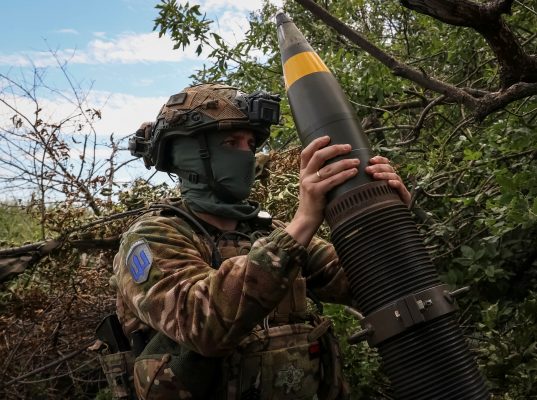You can’t outsource every important aspect of modern life. Otherwise, you end up where Europe now finds itself — with a limited ability to ensure economic prosperity, technological advancement, and defense of the continent.
This is most evident in the lagging European defense industry.
Environmental, social, and governance, or ESG criteria, have driven investment decisions across governments, institutions, and even retail investors over the last decade in Europe. ESG investing uses non-financial or expected returns-based criteria to make investment decisions.
There are positives —this has led to more funding for worthy endeavors such as renewable energy sources — albeit non-nuclear — while also pushing companies to be more responsible in the way they conduct business and interact with the environment. However, the aerospace & defense (A&D) industry, particularly the defense segment, has not been so fortunate.
European governments, activists, and the European Union (EU) have long pushed for A&D companies to be included on investment exclusion lists for an array of rationales from firearms production, the manufacturing of certain explosives, low fuel economy (yes really), or involvement in the nuclear supply chain. This pressure meant sovereign wealth funds and investment firms excluded A&D companies, ranging from small- and medium enterprises (SMEs) to prime contractors such as Airbus, BAE Systems, and Thales, from their portfolios. In public markets, this increases volatility, results in lower valuations, and raises the cost of capital for these companies.
Rapid development and deployment of defense capabilities will require an understanding of how defense investment has fundamentally changed in the last decade. Technological and investment trends have accelerated, shifting the balance of power in foundational research and development (R&D) and innovation away from governments and militaries to emerging tech companies and venture capital.
The US and China have been adapting to this new reality, with both embracing fast-growing, venture-backed startups focused on dual-use and defense tech, creating an array of new defense unicorns. This has not yet been matched in Europe. Without the ecosystem to support these companies, the continent is at risk of being left behind.
Many investors and government officials — at least those outside of their respective ministries or departments of defense — are unfamiliar with modern defense markets and associated defense and dual-use technologies (technologies that have both commercial government uses.) Defense requirements have expanded, going beyond kinetic equipment that most people immediately think of — firearms, bombs, and fighter jets. Increasingly, defense relies on key enablers such as space capabilities, unmanned systems, and artificial intelligence and analytics. While the US and China have recognized this shift and greatly increased government and private sector investment in these areas, this has not yet been matched in Europe.
Of the many lessons learned from the disastrous evacuation from Afghanistan and the Russian invasion of Ukraine, the biggest takeaways for Europe are that it can no longer outsource its defense and must be able to provide for itself. European democracies no longer have the luxury of excluding defense from ESG criteria and must adapt to incentivize investment in their own defense companies and technologies.
Conventional threats are clearly on the rise, while capability gaps abound. In addition to this, there are an array of below-the-threshold concerns such as election interference, disinformation, and related foreign malign influence. All of these require a dual-use and defense tech sector that can rise to meet these challenges. This necessitates the ability to leverage public markets and private sector investors, particularly in private equity and venture capital.
ESG criteria are meant to promote companies that are acting in a responsible manner and providing positive change. As Ukraine has demonstrated, the ability to defend territorial integrity, deter threats, and ensure the safety of the populace are prerequisites in protecting democratic values and human rights. If investors, European governments, and the EU are serious about providing positive change and protecting their values, then they must remove defense companies from exclusions lists, while also providing clear signals and incentivization to SMEs to enter and investors to support the sector.
Nicholas Nelson is a Senior Fellow for Emerging Tech and Policy at the Center for European Policy Analysis (CEPA). He is also a Principal and Senior Technology Advisor at the Georgia Tech Research Institute (GTRI), focused in emerging defense and dual-use technologies.




